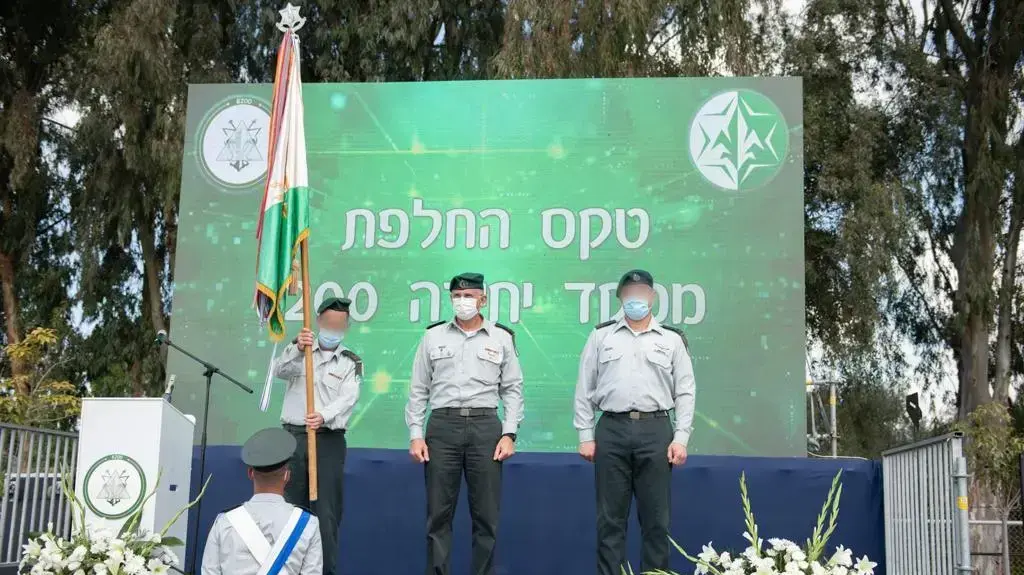A new study by the Institute for National Security Studies recommends that Israel establish a body that will manage the developing field as quickly as possible • "Formulating a policy on the subject is no less critical to national security"
Computer systems capable of generating knowledge and insights.
artificial intelligence
Photo:
GettyImages
"Israel must formulate a policy in the field of artificial intelligence, preferably one hour earlier."
This is what Dr. Liran Antebi, a researcher at the Institute for National Security Studies (INSS), claims in an innovative study she recently published, which last week was translated into English.
According to Dr. Antebi, formulating Israeli policy in this developing field is no less critical to Israel's national security, since she says the State of Israel is one of the world's leaders in development, and at the same time, it faces significant challenges that technology plays a significant role. The fact that Israel (almost) lacks natural resources, and its economic resilience relies heavily on the high-tech industry.
In a special interview on the occasion of the publication of her research in English, Antebi states that a body should be established to manage the field of artificial intelligence at the national level.
Currently, the issue is being addressed by a committee set up at the request of the prime minister, but the issue is being delayed, "and we can not afford to delay this issue."
So what exactly is artificial intelligence?
"There is no single definition of artificial intelligence, but in research artificial intelligence is a general name for data-based computer systems, capable of generating new knowledge and insights through capabilities such as understanding, reasoning and perception - hitherto perceived as unique to humans."
Can you give a military example?
"There are many examples of the use of artificial intelligence in the military today. Intelligence systems that know how to collect and analyze text; intelligence systems capable of recognizing faces and figures in video;
Why bother?
"Because these are systems that are evolving at an increasing rate. Some are doing great things in the field of defense, like Iron Dome for example, which is able to detect and intercept rocket launches, and operates at rates above the limit of human capability.
"On the other hand, there are systems that are lethal and not against a substance (rocket), but against a person, and then very complex legal and moral questions come in that need to be examined. A system that knows how to locate, identify, track and ultimately carry out lethal action against another person "It's not a trivial matter."
So why is artificial intelligence so important to Israel's national security?
"It is important for its military advantage over its enemies, and in response to the many security challenges it has in the context of ongoing security, in the framework of the war (the battle between the wars. LS) and in dealing with operations or even wars. Beyond that it may have far-reaching deterrent effects. Go in the classic security areas. "
What is the situation of Israel today in the field, in relation to the countries of the world?
"In the last decade, Israel has been one of the leading countries in the fields of artificial intelligence, such as in areas related to image and video decoding or autonomous driving, with companies such as Mobilai and others. But Israeli leadership is beginning to erode, partly due to tough competition in the world."
"In 2017, Vladimir Putin said that whoever leads in artificial intelligence will rule the world. He will not win, he will not lead, he will not rule - he will rule. Just like that. Many countries already have orderly plans and a well-informed government investment in this issue. Investing in it today creates a real arms race, which is reflected in pentagonal and non-pentagonal technologies, which may have a strategic impact. "
What does an arms race mean? Just like accumulating nuclear warheads or an arsenal of tanks?
"It's similar but different. It's similar to nuclear weapons for example, in terms of deterrence and the creation of a cold war, or of systems we really do not want to use and have a deterrent effect.
"It's different because the arms race is not just military. Leadership can be in a variety of areas, such as Deep Pike and Pike News, which can affect consciousness and election campaigns. Besides, the race is also economic, because it is a dual-use technology (military and civilian).
Which countries do you think best manage the subject of artificial intelligence?
"I look at the United States quite enviously. They have their shortcomings, they are many and varied and we have all sorts of advantages over them. But the very fact that they have a body like JAIC - Joint Artificial Intelligence Center, which manages everything related to artificial intelligence for the US Department of Defense - It's an impressive thing.
"It's not just about managing resources or allocating budgets, but a body that deals with the matter in depth. For example, they hired a group of experts who wrote an ethical code regarding the use of artificial intelligence in the security field. It is appreciated. Those who think it is unnecessary just do not understand the challenges." This one brings and will bring with it. "
The main concern - an over-war that we would like to prevent
Did you mention that this is not just about the security context, there are non-security issues that are important to you in this context?
"Absolutely! Artificial intelligence together with ancillary technologies, such as the Internet of Things for example, are already leading today to a revolution in the field of labor and production, which is estimated to be the next industrial revolution.
"As in any industrial revolution, here too there will be a massive mechanization of jobs and positions and this will have a significant impact on the economy. In several countries around the world these issues are already being discussed because it could lead to unemployment and change in wealth distribution.
"If a country wants to continue to make a living, it needs to think about income tax for robots. It's an amusing expression but it means a change in the forms of taxation alongside training those people whose jobs are about to disappear, for jobs that will be needed in the coming decades."
So what should Israel do or can do to have a positive impact on its national security?
"The study has many recommendations for Israel. It is important to say that its writing was accompanied by a committee of experts from the security, academic and industrial arenas. It was accompanied by a review of many materials from Israel and the world, especially the United States and the European Union."
We have compiled good recommendations unique to the Israeli ecosystem and the challenges that characterize time and place.
"Among the most important and urgent recommendations is the formulation of a national artificial intelligence strategy and the establishment of a body that will manage it at the national level. Beyond that, a multi-year artificial intelligence program is needed, such as the existing cyber cybersecurity. Internet connection).
"The recommendations I personally like the most are the kind of little things that make the difference, like examining an immediate combination of artificial intelligence in security technology areas where Israel already has a relative advantage to produce a power multiplier, such as UAVs and cyber, or training non-technological manpower. From the security sector to recognize and deal with the issue.
"In general, everything related to human resources and their management in a much more correct way than is done today, because apart from the infrastructure, it is a very significant bottleneck, on which there is tough competition."
What are the most important points in this context for the IDF for example?
“I think we need much more extensive exposure of commanders at various levels not only to technology, but also to a deeper understanding of how it works and what to think about as a result.
"In addition, I believe that a very important point for the IDF is to make preliminary decisions regarding the person's place in the operating circle.
It starts at the level of the commander who is responsible for the operation of the system, who should understand biases and problems that may arise so that he can prevent them, and up to the level of the engineer who designs the system to have interfaces that allow that commander to be truly effective and not just vertical.
"The issue of where to leave a person and where not is already a very significant strategic question, as a person may create inaccuracies or slowdowns. On the other hand there are places where we do not want to give up the person because these systems have not yet proven sufficient reliability and do not yet operate on moral considerations. "There are also those who question their ability to act in accordance with the law. Besides, it is desirable to preserve a certain redundancy by a man-machine mix. And the bottom line is the higher level of over-war we want to prevent."
What is an overtime war?
"A phenomenon of a chain of actions that will be carried out quickly beyond the limit of human capability by machines and lead to a war that no one intended, perhaps even while operating other systems like nuclear weapons."
So bottom line, is artificial intelligence good or bad?
"I am optimistic and believe in the place of man in this process and in general believe in our country. If we know how to manage this process correctly, as we have known to manage technological processes in the past, artificial intelligence can be a tremendous opportunity for Israel in general and its security in particular."















